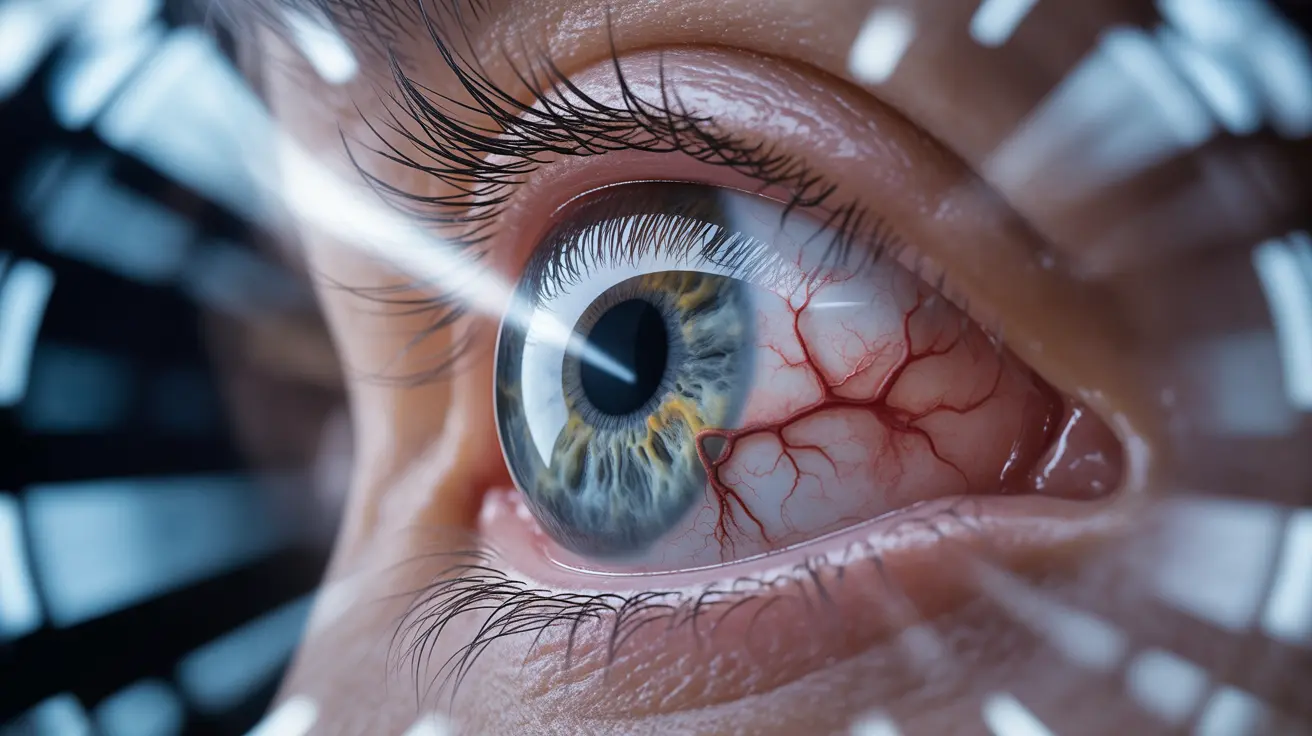If you've ever experienced blurred vision during moments of intense anxiety, you're not alone. This concerning but common symptom affects many people who deal with anxiety, often adding to their distress. Understanding the connection between anxiety and vision changes can help you better manage these symptoms and know when to seek professional help.
While anxiety-related vision problems can be alarming, they're typically temporary and resolve as anxiety levels decrease. Let's explore the relationship between anxiety and blurred vision, including why it happens and what you can do about it.
The Connection Between Anxiety and Vision Changes
When anxiety strikes, your body initiates the "fight or flight" response, triggering various physiological changes. These changes can directly affect your vision in several ways:
- Increased muscle tension around the eyes
- Changes in blood flow and pressure
- Pupil dilation
- Rapid eye movements
- Heightened sensitivity to light
These physical responses, while natural, can temporarily alter your visual perception and lead to blurred or unfocused vision.
Physical Mechanisms Behind Anxiety-Related Vision Changes
Muscle Tension Effects
During anxiety episodes, muscles throughout your body tense up, including those controlling eye movement and focus. This tension can affect your eyes' ability to maintain clear focus, resulting in temporary vision changes.
Blood Flow and Pressure Changes
Anxiety typically increases blood pressure and alters blood flow patterns throughout the body, including to the eyes. These circulatory changes can temporarily impact your visual acuity and perception.
Duration and Warning Signs
Anxiety-related vision problems usually last only as long as the anxiety episode itself, typically ranging from a few minutes to several hours. However, certain signs warrant medical attention:
- Persistent blurred vision lasting more than a day
- Sudden onset of severe vision changes
- Vision problems accompanied by severe headaches
- Eye pain or pressure
- Visual disturbances unrelated to anxiety episodes
Managing Anxiety-Related Vision Problems
Immediate Relief Strategies
When experiencing anxiety-induced blurred vision, these techniques can help:
- Deep breathing exercises
- Progressive muscle relaxation
- Focusing on a distant object
- Gentle eye exercises
- Taking short breaks from screens
Long-term Prevention
To reduce the frequency and severity of anxiety-related vision problems, consider:
- Regular stress management practices
- Consistent sleep schedule
- Regular eye examinations
- Anxiety therapy or counseling
- Lifestyle modifications to reduce overall anxiety
Frequently Asked Questions
1. Does anxiety cause blurred vision and how common is this symptom? Yes, anxiety can cause blurred vision, and it's a relatively common symptom experienced by many people during anxiety episodes. The frequency varies among individuals, but studies suggest that visual disturbances occur in a significant number of anxiety cases.
2. What physical changes during anxiety lead to blurry or foggy vision? Anxiety triggers various physical changes that can affect vision, including increased muscle tension around the eyes, changes in blood flow, pupil dilation, and altered tear production. These physiological responses can temporarily impact visual clarity.
3. How long does anxiety-related blurred vision typically last, and when should I seek medical help? Anxiety-related blurred vision usually subsides when the anxiety episode ends, typically within minutes to hours. Seek medical attention if vision problems persist beyond 24 hours, occur suddenly without anxiety, or are accompanied by severe headaches or eye pain.
4. What techniques can help manage anxiety-induced blurred vision and prevent it from recurring? Effective management techniques include deep breathing exercises, progressive muscle relaxation, regular exercise, stress reduction practices, and maintaining good eye health. Professional anxiety treatment may also help reduce the frequency of vision-related symptoms.
5. Can chronic anxiety cause lasting damage to eyesight or lead to other eye conditions? While anxiety-related vision changes are typically temporary, chronic stress and anxiety can contribute to eye strain and other vision-related issues. Regular eye examinations and proper anxiety management can help prevent potential long-term effects.




